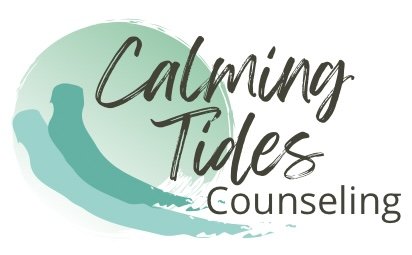Healing Through Communication: Tips for Trauma Survivors to Express Their Needs
Effective communication is essential for building healthy relationships, but it can feel especially challenging after complex trauma. Learning how to express needs, set boundaries, and share when you’re feeling triggered can strengthen support systems and help healing. This blog explores why communication matters and how trauma-informed strategies can make it easier to feel heard.
Why Communication Matters
We hear all the time that communication is key in any relationship... and it’s true! Relationships thrive on open dialogue, vulnerability, and trust. When we’re able to clearly express our needs, we avoid misunderstandings and create space for more meaningful connections.
For individuals healing from trauma, effective communication is especially important. Being able to share needs, set boundaries, and express emotions not only supports the healing process but also helps rebuild confidence, empowerment, and a sense of safety. Relational trauma (such as childhood neglect and abuse, domestic violence, or bullying) can have many effects on a person, especially in how they are able to express themselves to others.
How Trauma Impacts Communication
When people experience early childhood trauma or prolonged relational trauma, we often develop patterns of behavior that help us survive within those unhealthy dynamics. These patterns might include staying silent and suppressing emotions, avoiding conflict (like walking on eggshells), or people-pleasing to keep the peace. While these responses are adaptive in unsafe environments, they can become maladaptive once we’re no longer in those toxic situations.
Over time, these communication styles may carry into other relationships, creating new challenges. Communication can start to feel unsafe, lead to misunderstandings, or leave you believing there’s something “wrong” with you, when in reality, these patterns are learned survival strategies that no longer serve you.
The good news is that communication skills can be relearned, and building healthier patterns not only strengthens relationships but also supports the healing process.
Learning to Communicate Your Needs and Triggers
A big part of the healing journey is learning how to recognize your needs and triggers, then practicing ways to communicate them. This might mean letting others know when you need support or understanding, or setting boundaries when something feels overwhelming. Over time, these small steps help you feel more in control and less stuck in old patterns.
Noticing the warning signs in your body like a racing heart, tight chest, or feeling on edge, gives you the chance to act before things spiral. You might say, “I’m feeling overwhelmed and need a few minutes,” or, “This topic is bringing up some past stuff for me… can we take a break?” By speaking up in the moment can prevent emotional flooding and help you stay grounded in your relationships.
Below are 4 really helpful communication tools you can practice with your loved ones.
4 Skills to Strengthen Communication:
Use “I” statements to express feelings without blame: Using “I” statements lets you speak from your own experience, share your emotions honestly, and take ownership of them without putting blame on the other person.
Ex.: “I’m feeling uncomfortable, I need time to think about it.”
Practice reflective listening: By repeating back what we’ve heard, it shows that we’re truly listening and trying to understand. It also allows for clarity, which helps reduce misunderstandings and keeps the conversation more connected.
Ex.: “It sounds like you want to take a break from this conversation because it’s causing you to feel uncomfortable.”
Regulate before you communicate: Be intentional about working to stay regulated when planning to communicate your needs and express yourself. Be mindful of your breath, use your grounding techniques, and take breaks when needed.
Incorporate check-ins into your relationships: Set the expectation that communication, feedback and boundaries are an expected and normal aspect of your relationships.
What Trauma-Informed Communication Looks Like
Trauma-informed communication means being compassionate, mindful, and clear. It’s about respecting your own boundaries and holding firm to your limits, while also staying aware of the other person’s emotional state.
It also means honoring when others set boundaries, even if they’re not ready to talk yet. This approach invites curiosity instead of judgment and helps create a safe, supportive space for both people in the conversation. This lays the foundation for a more emotionally secure relationship.
You Deserve to Be Heard
No matter what you’ve been through, you deserve to take up space and be heard. Even if your past experiences made you feel like your voice doesn’t matter or that you’re not worthy of love, the truth is… you are worthy of healing and meaningful relationships. One way to begin is by building safety within your connections through effective communication.
You have the power to change your narrative and reclaim your story!
Healing with Support: Find a Trauma Therapist in Winter Park
If you’re finding it hard to communicate with the people around you or struggling to hold a safe space for those who have experienced trauma or major life stressors, and you’ve tried all the things above but nothing seems to be changing—this is your sign to take the next step and seek out additional support.
Seeking out a trauma specialist can help you process past experiences and learn new ways to regulate your emotions so you can communicate more effectively. It can also be helpful for loved ones to meet with a mental health counselor, giving them space to explore what’s coming up for them and learn how to best support the people they care about.
In my experience as an EMDR therapist in Winter Park, I’ve seen the difference that trauma-informed support can make. EMDR helps people finally process what they’ve been carrying so that old wounds don’t keep resurfacing in daily life. With the right support, healing is possible and you don’t have to do it alone.
